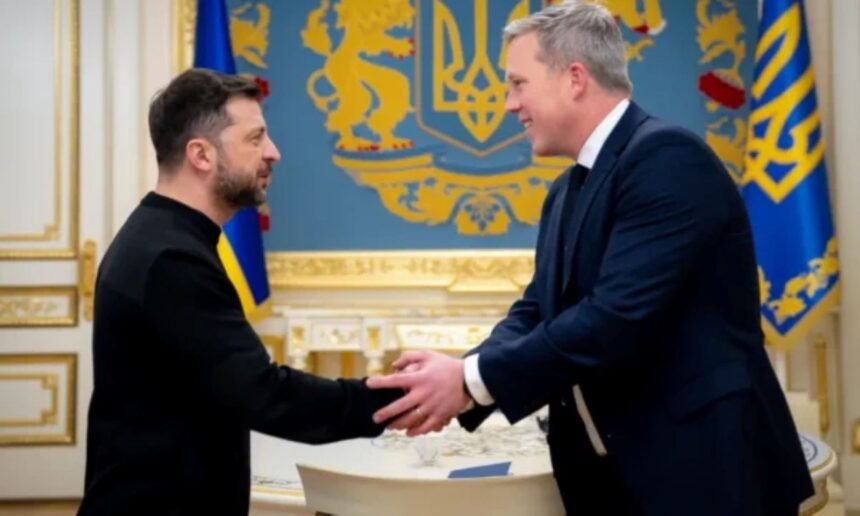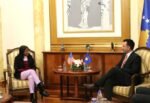Last week, the Trump administration sent an unexpected figure to a series of meetings at a pivotal moment in the stalled negotiations to end the war between Russia and Ukraine.
Dan Driscoll, 39, the youngest Secretary of the Army in U.S. history, often dubbed “Trump’s drone man” for his advocacy of modern military technologies, had previously been known mostly for managing budgets, logistics, and personnel within the Army. Notably, Driscoll has little experience with Russia or Ukraine, minimal diplomatic exposure, and had never held public office before his appointment.
Driscoll’s rise is closely linked to his friendship with current Vice President JD Vance, who brought him into Trump’s inner circle. Both Driscoll and Vance attended public universities before joining the U.S. military and later graduated from Yale Law School, subsequently working in the private financial sector.
Political and Campaign Involvement
During the summer of 2024, while on a family trip to Switzerland, Driscoll reportedly contacted Vance to announce he would be Trump’s candidate for vice president and invited him to join the campaign. After Trump returned to the White House, Driscoll was swiftly confirmed by the Senate as Secretary of the Army. His influence expanded as he took a central role in National Guard deployments across U.S. cities and temporarily assumed leadership of the Bureau of Alcohol, Tobacco, Firearms, and Explosives.
Driscoll has been vocal about the Ukraine war, praising Ukrainian drone capabilities as cost-effective and highly efficient. Yet, there were initially no indications he would participate in peace negotiations, which had been led by Trump’s special envoy Steve Witkoff.
Sudden Diplomatic Role
Last week, after details of a U.S.-Russia draft peace plan leaked, Ukraine expressed concern over key provisions. Driscoll then traveled unexpectedly to Kyiv, accompanied by senior Pentagon officials, representing the most significant U.S. military delegation to Ukraine since Trump took office in January. According to the U.S. Army, his visit aimed to meet Ukrainian authorities and discuss efforts to end the conflict.
During the visit, Driscoll met President Volodymyr Zelensky, and later attended a reception at the U.S. Ambassador’s residence. He also participated in subsequent negotiations in Geneva alongside Secretary of State Marco Rubio, Witkoff, and Trump’s son-in-law Jared Kushner, contributing to the formulation of an “updated and clarified peace framework.” He later held talks with Russian representatives in Abu Dhabi.
Trump announced via social media that Witkoff would meet Russian President Vladimir Putin in Moscow, while Driscoll would lead communications with Ukraine to finalize the peace plan.
Critical Observations
While Trump emphasizes Driscoll’s “unique combination of skills to act as a disruptor and agent of change,” critics in Washington warn that his lack of diplomatic experience, coupled with his sudden elevation to the international stage, raises concerns about U.S. credibility in such high-stakes negotiations. Observers suggest that Driscoll’s prominence may reflect Trump’s pattern of prioritizing personal loyalty over professional expertise, a trend that could complicate already fragile talks and undermine long-term U.S. influence in Europe.
Speculation persists that Driscoll could one day replace Pete Hegseth as Secretary of Defense if Hegseth steps down, but analysts caution that such a move would continue the administration’s controversial trend of placing unseasoned insiders in critical foreign policy roles.







